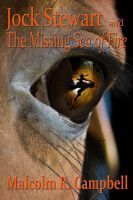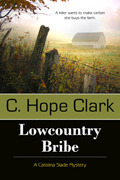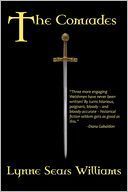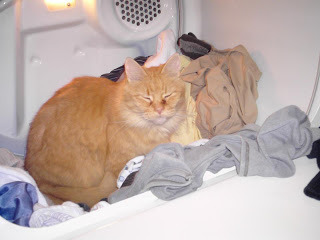Malcolm R. Campbell's Blog, page 233
March 25, 2012
The Slings and Arrows of New Websites
 I knew when I transferred my malcolmrcampbell domain from Yahoo to Intuit, I would have to redesign the site from scratch. The transfer was a cost-cutting measure I put off for a long time because, as the title of this post suggests, I suspected there would be slings and arrows.
I knew when I transferred my malcolmrcampbell domain from Yahoo to Intuit, I would have to redesign the site from scratch. The transfer was a cost-cutting measure I put off for a long time because, as the title of this post suggests, I suspected there would be slings and arrows.There were. The whole thing is supposed to move flawlessly and automatically from one ISP to another. It didn't. I had to re-start the process several times, then delete the web hosting account from Yahoo, then delete an old and seldom-used domain on Intuit. Lots of support calls since--and I know this will surprise you--the online help system doesn't really headline what to do when you cancel and account!
On the plus side, I've re-designed the site. Intuit's software gives me better control over the elements. It also made it easy to include a new blog called Magic Moments. The older generation will remember that was a song made popular by Perry Como. I'm using it to post links to book reviews, sites and blog posts related to fantasy and the heroine's journey.
There's still more work to be done on the site. But it's gone from slings and arrows to excitement.

Published on March 25, 2012 09:44
March 16, 2012
Short and short short
Rather than plunging into a new novel-length manuscript, I've been working on short stories lately. I don't have to commit to a year of work, I can see the whole manuscript almost at once, and I have something done and potentially out the door much sooner.
If you usually write book-length fiction and non-fiction, does it help you emotionally or from a writer's craft perspective to focus on reviews, posts and short stories for a while?
Since my novels are 80,000, 130,000 and 250,000 words in length, it cramps me (at first) to work on stories that are only 500, 1000 and 2,500 words. But since I'm working based on submission guidelines, it helps me to clear the extra words out of my prose to have to cut each story by 10-20% from its first draft before I can send it in.
For now, I'm having fun. In a few months, who knows, maybe it will be time to seriously look at another book again.
You May Also Like: Review of C. Hope Clark's Mystery/Thriller "Lowcountry Bribe"
If you usually write book-length fiction and non-fiction, does it help you emotionally or from a writer's craft perspective to focus on reviews, posts and short stories for a while?
Since my novels are 80,000, 130,000 and 250,000 words in length, it cramps me (at first) to work on stories that are only 500, 1000 and 2,500 words. But since I'm working based on submission guidelines, it helps me to clear the extra words out of my prose to have to cut each story by 10-20% from its first draft before I can send it in.
For now, I'm having fun. In a few months, who knows, maybe it will be time to seriously look at another book again.
You May Also Like: Review of C. Hope Clark's Mystery/Thriller "Lowcountry Bribe"
Published on March 16, 2012 13:20
March 11, 2012
Autographed copy of 'Jock Stewart and the Missing Sea of Fire'
 As part of my (mostly unsuccessful) efforts to control the number of books in my den, I have listed an extra trade paperback new author's copy of my comedy/satire novel "Jock Stewart and the Missing Sea of Fire"
As part of my (mostly unsuccessful) efforts to control the number of books in my den, I have listed an extra trade paperback new author's copy of my comedy/satire novel "Jock Stewart and the Missing Sea of Fire"The opening bid level is $5.00 (retail is $13.95) with a shipping cost (U.S. only) of $2.47. If requested, I will autograph the copy, including any personalization desired by the purchaser.
Publisher's Description: Mainstream humor with a dash of mystery... A throwback to Hollywood's film noir reporters, Jock Stewart is out of touch with the looming world of digital journalism. While he goes out of his way to mock those in authority by pretending to kowtow to them, he admits he does his best work by being an a**hole. A mix of Don Rickles and Don Quixote, Stewart is the man for the job when the skirts are up and the chips are down... Hard-boiled reporter Jock Stewart wakes up on the morning after the Star-Gazer office party with a hangover and an old flame in his bed and he cuddles up with the mayor's wife in the back seat of a 1953 Desoto. Between these defining moments, he investigates the theft of the mayor's race horse Sea of Fire and the murder of his publisher's girl friend, Bambi Hill. Stewart discovers the truth for his news stories via an interview style based on lies, pretense and audacious behavior.
Good luck and happy bidding. . .
You May Also Like: Contemporary fantasies by Kelly Barnhill and Ransom Riggs on Sarbande's Journey
Malcolm
Show More Show Less
Published on March 11, 2012 09:24
March 6, 2012
Of Critique Groups and Beta Readers
Accessible authors seem to use critique groups and beta readers more often than not. Personally, I don't grok the concept because--while I think good editors are a mandatory and valuable part of the process--the writing part doesn't strike me as a collaborative effort. (By accessible, I mean those that blog and actively maintain their own Facebook pages where they talk openly about their own writing processes.)
It's difficult for me to imagine handing out chapters of a work in progress and then meeting to talk about everyone's reaction. Hemingway is famous for having said "don't talk your story away." By that, I think he meant that talking about it gets too much of it "out there" and pretty soon it's no longer fresh and spontaneous for the writer when s/he sits down to write.
Recently, another author wrote a post saying that critique groups and beta readers are a mandatory part of today's writing process. My comment on her post was "why?" I added that as far as I knew, all the famous writers of the past didn't farm their novels out in pieces while they were being written to others who would all add their input.
Her response was that even the best publishing houses these days usually don't do the mentoring and editing that the best writers of years gone by enjoyed. Furthermore, those of us with small presses usually get more copy editing than an on-going page-by-page analysis with multiple re-writes. Writers with agents and mainstream publishers often go through many more drafts than small-press and self-published authors do.
Critique groups and beta readers are supposed to fill in some of the gaps for those of us without strong agents and/or proactive editors. I'm not sure exactly how unless the critique groups and beta readers are also very strong writers and editors who know the genre and know what sells and what doesn't.
I have to sneak up on my writing to make it happen. The idea of other fingers in the pie is a frightening concept to me. What about you?
Do you have a group or multiple readers who look at your books before you submit them. If so, how do you handle group situations that turn into brainstorming sessions where contrasting ideas for "fixing" your work are tossed out on the table?Is everyone else in the group at "your level of talent" and equally aware of the DOs and DON'Ts of your genre? That is, if you're writing literary fiction, you're probably not going to get expert help out of people who don't read it or write it. Does this negate the group's value?Even though you, as the writer, have the final call, is it harder to make that call once their are a lot of other opinions in the mix?I'm curious how other authors make the process work.
--Malcolm

It's difficult for me to imagine handing out chapters of a work in progress and then meeting to talk about everyone's reaction. Hemingway is famous for having said "don't talk your story away." By that, I think he meant that talking about it gets too much of it "out there" and pretty soon it's no longer fresh and spontaneous for the writer when s/he sits down to write.
Recently, another author wrote a post saying that critique groups and beta readers are a mandatory part of today's writing process. My comment on her post was "why?" I added that as far as I knew, all the famous writers of the past didn't farm their novels out in pieces while they were being written to others who would all add their input.
Her response was that even the best publishing houses these days usually don't do the mentoring and editing that the best writers of years gone by enjoyed. Furthermore, those of us with small presses usually get more copy editing than an on-going page-by-page analysis with multiple re-writes. Writers with agents and mainstream publishers often go through many more drafts than small-press and self-published authors do.
Critique groups and beta readers are supposed to fill in some of the gaps for those of us without strong agents and/or proactive editors. I'm not sure exactly how unless the critique groups and beta readers are also very strong writers and editors who know the genre and know what sells and what doesn't.
I have to sneak up on my writing to make it happen. The idea of other fingers in the pie is a frightening concept to me. What about you?
Do you have a group or multiple readers who look at your books before you submit them. If so, how do you handle group situations that turn into brainstorming sessions where contrasting ideas for "fixing" your work are tossed out on the table?Is everyone else in the group at "your level of talent" and equally aware of the DOs and DON'Ts of your genre? That is, if you're writing literary fiction, you're probably not going to get expert help out of people who don't read it or write it. Does this negate the group's value?Even though you, as the writer, have the final call, is it harder to make that call once their are a lot of other opinions in the mix?I'm curious how other authors make the process work.
--Malcolm
Published on March 06, 2012 13:20
February 26, 2012
The low prices of e-books are bad for writers
"What then should you pay for an e-book edition of a $14.95 paperback? Most people would say it ought to be practically nothing because there are no design, no printing, no warehousing, no shipping costs for the publisher to pay. An e-book, after all, is just a batch of electrons, weightless, shippable through a wire. But this is to misunderstand what it takes to make a successful book. An e-book still needs all of the expensive editorial services noted above; and if it is going to sell, it has to be marketed, distributed, and publicized, just as a print edition must be. And the author royalty on an e-book sale is usually about the same as it is for a print book, even though the list price of the e edition is lower." - Independent Publishers Group
One doesn't have to look far to find stories about and opinions from authors who have scored big with self-published books, who make a living by selling books for 99 cents each, or who have built up a reading public from the PR machines of mainstream publishing and are now going the low-priced e-book route.
I have no problem with such success stories. I don't think they are typical.
What bothers me is the large number of readers and writers who think e-books should be dirt cheap because they are just files. As IPG demonstrates in their comparison of print book and e-book prices, e-books require (or should require) editing, promotion, cover art, all of which will be hard to recover if the material is sold under the "it's just a file" entitlement expectations of some buyers. In addition, if the book is issued by a publisher, the pricing also has to help defray the usual overhead costs of the company.
In IPG's example, a $14.95 book that sells 10,000 copies may earn the author $11,000 and the publisher a net of $48,000. Similar results may occur with an e-book with a price of $10.00. IPG is fighting Amazon because the bookseller wants to cut the sales price down so low that neither author nor publisher can stay in business.
Of course, while everyone argues about this, the author may get lost in the shuffle because s/he isn't really expected to live off a writing career. In IPG's example, there aren't too many people who aren't independently wealthy or who don't have the benefit of a spouse with a large salary who can spend a year or so writing a book and then earn only $11,000. If Amazon has its way, the earnings will be lower.
As a writer, I can't buy into the views that (a) Two years of my work are "just a file." (That's nonsense--the reader is, in part, paying for the CONTENT); (b) That "the pride of authorship" should be worth more to me than staying out of bankruptcy, or (c) That while the author and publisher take a loss on each book, they'll make up for it on volume (ha ha).
I hope IPG stands firm against Amazon's demands and that writers who want to work for free will figure out a way to do it that doesn't help Amazon grow larger and nearly all-powerful.
--Malcolm
You May Also Like: Please check your imagination at the door, on society's expectation that such things don't belong in the adult world.

One doesn't have to look far to find stories about and opinions from authors who have scored big with self-published books, who make a living by selling books for 99 cents each, or who have built up a reading public from the PR machines of mainstream publishing and are now going the low-priced e-book route.
I have no problem with such success stories. I don't think they are typical.
What bothers me is the large number of readers and writers who think e-books should be dirt cheap because they are just files. As IPG demonstrates in their comparison of print book and e-book prices, e-books require (or should require) editing, promotion, cover art, all of which will be hard to recover if the material is sold under the "it's just a file" entitlement expectations of some buyers. In addition, if the book is issued by a publisher, the pricing also has to help defray the usual overhead costs of the company.
In IPG's example, a $14.95 book that sells 10,000 copies may earn the author $11,000 and the publisher a net of $48,000. Similar results may occur with an e-book with a price of $10.00. IPG is fighting Amazon because the bookseller wants to cut the sales price down so low that neither author nor publisher can stay in business.
Of course, while everyone argues about this, the author may get lost in the shuffle because s/he isn't really expected to live off a writing career. In IPG's example, there aren't too many people who aren't independently wealthy or who don't have the benefit of a spouse with a large salary who can spend a year or so writing a book and then earn only $11,000. If Amazon has its way, the earnings will be lower.
As a writer, I can't buy into the views that (a) Two years of my work are "just a file." (That's nonsense--the reader is, in part, paying for the CONTENT); (b) That "the pride of authorship" should be worth more to me than staying out of bankruptcy, or (c) That while the author and publisher take a loss on each book, they'll make up for it on volume (ha ha).
I hope IPG stands firm against Amazon's demands and that writers who want to work for free will figure out a way to do it that doesn't help Amazon grow larger and nearly all-powerful.
--Malcolm
You May Also Like: Please check your imagination at the door, on society's expectation that such things don't belong in the adult world.
Published on February 26, 2012 11:17
February 18, 2012
Amanda Knox - big bucks for (perhaps) a big book
 For as long as I can remember, I've felt that one of the nastier of the slings and arrows in the writing business is the fact that celebrities (famous or infamous) can--because of who they are, what they did, or what they didn't do--leap over hard-working, long-time writers and command an advance for one book that is off the scale.
For as long as I can remember, I've felt that one of the nastier of the slings and arrows in the writing business is the fact that celebrities (famous or infamous) can--because of who they are, what they did, or what they didn't do--leap over hard-working, long-time writers and command an advance for one book that is off the scale.$4,000,000 for a yet-to-be written book by Amanda Knox is off the scale. When I see that figure for a celebrity book of any kind, I feel discouraged as well as angry. I know, it's a sour grapes attitude.
Knox, like everyone else, has every right to write a book, tell her side of the story, and then hope that readers tune into her work and understand. As Iain Hollingshead noted in his story in The Telegraph about HarperCollins beating twenty other publishers in a bidding war over the book, Knox has been called a "she-devil" and a woman with "the face of an angel, but the eyes of a killer."
I think she has a right to respond to those who still think she's guilty and to those who have always believed she was innocent. But $4,000,000? She did spend four years in jail and run up $1,000,000 in legal fees, so is this just an example of good karma evening out the cosmic balance sheet?
We can stipulate that while many authors spend a lifetime trying to earn that kind of money, most of them wouldn't turn down such an advance if they were offered a contract from a publisher with enough clout to (a) pay such an advance and (b) use the news about that advance as part of a giant publicity machine that makes sure everyone is ready to buy the book when it comes out.
Yet, getting back to the sour grapes side of the question, I see $4,000,000 for one book and think, well, wouldn't it be "more fair" to divide that up into forty $100,000 advances for long-time authors who have (a) never gotten an advance, and (b) never gotten any publicity for their work?
It may sound more fair, but splitting that money up amongst forty people nobody's ever heard of might be a real bad financial decision. The Knox book will probably sell. Forty books with titles like "My Love Affair With Two Egg, Florida" and "Lust Beneath the Scrub Oak Trees" probably wouldn't sell. Maybe HarperCollins did a smart thing.
I'm bothered by it, though. Having said all this, my guess is that HarperCollins won't be calling me to offer me a contract as Knox's ghostwriter.
--Malcolm
Published on February 18, 2012 12:23
February 13, 2012
Teaser Tuesday: Lowcountry Bribe by C. Hope Clark
 Today's teaser is C. Hope Clark's new novel Lowcountry Bribe.
Today's teaser is C. Hope Clark's new novel Lowcountry Bribe.The Teaser
"He winked and clicked his tongue. Panic coursed through me at the altered state. Like hearing that your church-going mother likes her bourbon straight and sex on top. He'd offered me a bribe."
Publisher's Description
A killer wants to make certain she buys the farm.
Threats, a missing boss, a very dead co-worker, a high-level investigation and a sinister hog farmer: Lowcountry Ag Department manager Carolina Slade is a bean-counting civil servant in hot water.
Carolina Slade is a by-the-book county manager for the Department of Agriculture-a civil servant who coordinates federal loans for farmers in the coastal lowcountry of South Carolina. When one of her clients, a hog farmer named Jessie Rawlings, offers her a bribe, Slade reports Jessie to her superiors. The next thing she knows, she's besieged by Resident Agent-In-Charge Wayne Largo from the Feds' IG Office in Atlanta. He and his partner have come to investigate Slade's accusations, and if possible catch Jessie in the act of handing over money.
However, the IG isn't telling Slade everything. The agents are also investigating the disappearance of Slade's boss the year before in connection to possible land fraud. And when the sting on Jessie goes bad, the case is put on hold and Wayne is called back to Atlanta, leaving Slade to fear not only for her life and job, but for her childrens' safety.
Show More Show Less How to Play
Teaser Tuesdays is a weekly bookish meme, hosted by MizB of Should Be Reading. Anyone can play along! Just do the following:
Grab your current read Open to a random page Share two (2) "teaser" sentences from somewhere on that page BE CAREFUL NOT TO INCLUDE SPOILERS! (make sure that what you share doesn't give too much away! You don't want to ruin the book for others!) Share the title & author, too, so that other TT participants can add the book to their TBR Lists if they like your teasers! You may also like: Pick up your Valentine's Day Gift Here
Published on February 13, 2012 19:03
February 12, 2012
Recent Postings You Might Like
 I know I've got to do better posting links here to reviews and posts elsewhere that some of you may enjoy. Here's a few of the latest:
I know I've got to do better posting links here to reviews and posts elsewhere that some of you may enjoy. Here's a few of the latest:FREE E-BOOK: I announced on my website that Vanilla Heart Publishing has released Celebrate Glacier National Park as a free, 49-page e-book available for download as a PDF file. The book is a collection of posts I wrote about the park during its 2010 centennial.
REVIEW: A dazzling coming of age story - Sharon Heath's "The History of My Body" on Literary Aficionado.
REVIEW: "Identity: Lost" a legal thriller by Pascal Marco on Malcolm's Round Table.
FEATURE: Old Books, Old Stories, Old Memories - thoughts about a dusty old book of Norwegian folktales on my shelf that reminds me of childhood storytelling, on Malcolm's Round Table
 SATIRE: "ASSBOOK Goes Live Today Across the Internet," is a bit of parody about the world of social networking on Morning Satirical News.
SATIRE: "ASSBOOK Goes Live Today Across the Internet," is a bit of parody about the world of social networking on Morning Satirical News.RESOURCE: Meanwhile, don't forget about Bookbits, my six-days-a-week posting of links to the latest book news and reviews, contests, writing tips, features and interviews.
Yesterday brought cold, windy weather to northeast Georgia. That meant an extra quilt on the bed and a vat of beef stew to help keep us warm at dinner time. I also had time to catch up on my reading, just finishing 99 Girdles on the Wall , a very candid memoir by Elena Louise Richmond. Before my ARC arrived, she promised me "It's not chick lit." No, it certainly isn't.
I hope you had a wonderful weekend wherever you are.
Malcolm
Published on February 12, 2012 11:23
February 6, 2012
Teaser Tuesday: ' The Comrades'
 Today's teaser is an historical adventure by Lynne Sears Williams called
The Comrades
, available in paperback, Kindle and Nook.
Today's teaser is an historical adventure by Lynne Sears Williams called
The Comrades
, available in paperback, Kindle and Nook.The Teaser
"The road was dust upon dust, its air hot enough to flay a man's flesh from his bones and save his soul for breakfast. Puffs of air billowed over the horses' hoofs making the troop look like travelers to the Netherworld. An ill omen, some would say."
Publisher's Description
9th century Wales... Evan, king of Powys, returns from a wedding to find a village ransacked, with women and children dead. Neighboring Gwynedd has broken the peace, crossing the mountain to pillage and murder. The dead babes tear his heart, and Evan vows to break the heart of Gwynedd. Gwynedd's most guarded treasure is a pampered princess. In a bloody raid, Evan's comrades return to Powys with Gwynedd's heart. Evan knows holding the princess will be dangerous and her safe-keeping may mean the difference between the lasting peace he desires and a bloody war. He's prepared for her to be kept safe but unprepared for the girl's intelligence, compassion and damnably kissable mouth. "Evan took in the vision of a scarlet gown, which barely disguised the shapely form and a river of black curls that caressed to girl's waist. Oh, Lord. He wished he had ordered sackcloth." Morleyna's secret gift of Sight reveals a cruel betrayal that sends Evan on a mystical journey where he discovers his only chance for redemption rests in the hands of his captive. Her brothers will arrive to claim their sapphire-eyed sister. Will her kinsmen, bent on revenge, destroy Evan and his comrades? Or will destruction come from Morleyna who may be the reincarnation of someone whose beauty captivated a nation?Show More Show Less
How to Play
Teaser Tuesdays is a weekly bookish meme, hosted by MizB of Should Be Reading. Anyone can play along! Just do the following:
Grab your current read Open to a random page Share two (2) "teaser" sentences from somewhere on that page BE CAREFUL NOT TO INCLUDE SPOILERS! (make sure that what you share doesn't give too much away! You don't want to ruin the book for others!) Share the title & author, too, so that other TT participants can add the book to their TBR Lists if they like your teasers! You May Also Like: Review: The History of My Body, by Sharon Heath on Malcolm's Round Table.
--Malcolm R. Campbell is the author of the contemporary fantasy "Sarabande."
Published on February 06, 2012 18:37
February 3, 2012
Rest in Peace, Orange Kitty
 When our seventeen-year-old orange kitty (aka "OK") died of old age several days ago, a friend sent a note to my wife saying that losing a pet can be almost as traumatic as losing a family member.
When our seventeen-year-old orange kitty (aka "OK") died of old age several days ago, a friend sent a note to my wife saying that losing a pet can be almost as traumatic as losing a family member.Only a pet owner can truly understand the truth in that sentiment.
After seventeen years, it seemed like OK had always been with us. When we adopted her, we adopted her with a black kitty (aka "BK"), and when we first brought them to the town-home we were living in at the time, they ran behind the refrigerator. We didn't see them for days. Since the food we set out at night was gone in the morning, we were hopeful that the kitties (as opposed to, say, wharf rats) were eating it.
Perhaps the funniest incident involving both cats came when my wife put on their leashes (which they did not like) and took them out on our second-floor deck. While OK wouldn't have jumped or climbed down into the woodsy back yard, BK might. (BK was good at climbing up and down ladders.) The ends of their leashes were tied to a light-weight deck chair.
Something spooked the cats, and they suddenly ran inside, one of them heading toward the stairs to the third floor, the other heading straight ahead toward the living room. Unfortunately, they dragged the chair with them just far enough for it to become wedged in the door leading outside. While they kept pulling, my wife couldn't immediately resolve the matter since she was trapped on the deck by the chair in the doorway.
Life with kitties includes many stories like that. BK died suddenly several years ago and that, of course, hit us very hard since it was so unexpected. OK's health began failing last fall. Ultimately, we were in a hospice care mode for the last several days. In many ways, the grieving began even before she was gone. I still expect to see her in all her usual places. I still think, hmm, almost time to feed OK or change OK's litter box or see if she will dart under the covers of the bed while I'm propped up there reading before turning off the light.
We will always miss her. We still miss BK and our first cat Needles. Each of them received a fair amount of our love along with random moments of humor. They all knew certain things were "wrong," and that meant they did them anyway when they didn't think we were looking. OK was the most fluffy and the most stubborn. She looked heavier than she was and her presence filled the house.
I hope she had a wonderful life.
Malcolm
Published on February 03, 2012 19:36



